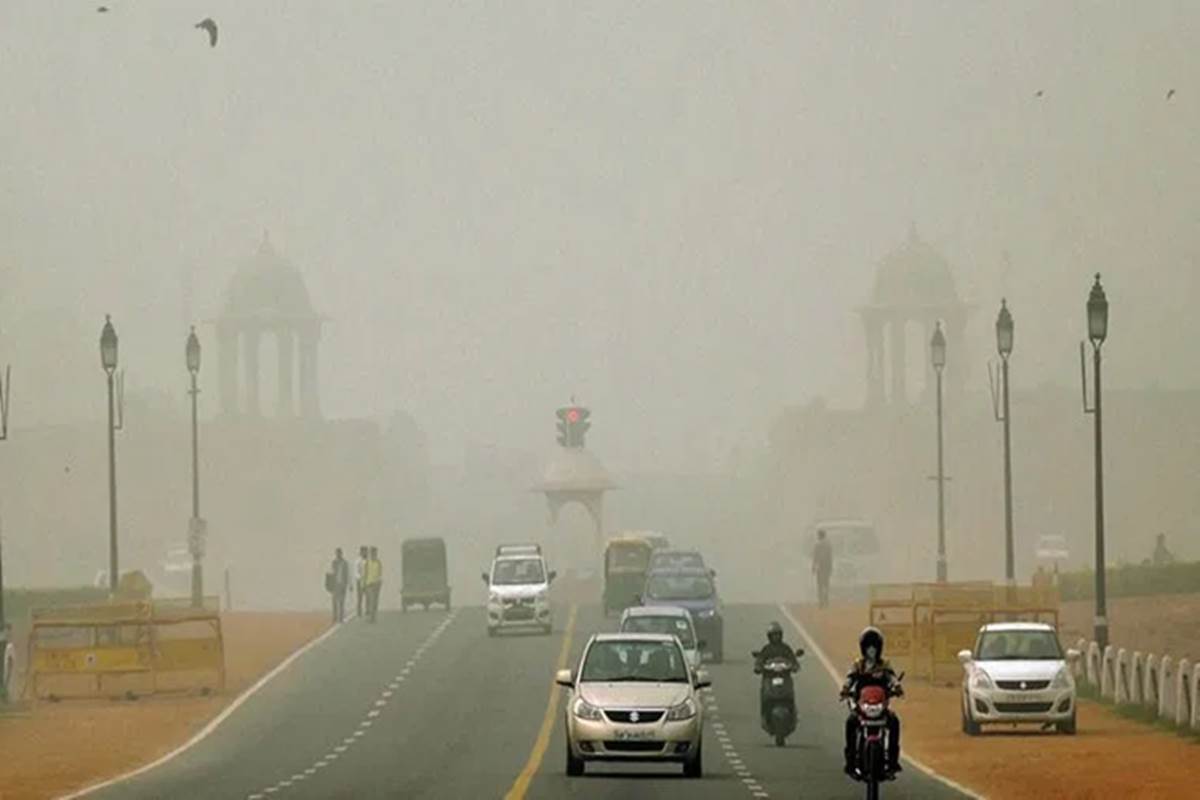
Schools shut, flights diverted, odd even on as Delhi air quality hits 625
The pollution levels in New Delhi shot up on Sunday morning even as the city was enveloped in a thick smog. Pollution levels in New Delhi escalated to the ‘emergency’ category on Friday for the first time since January 2019.

The pollution levels in New Delhi shot up to 625 AQI (Air Quality Index) on Sunday (November 3) morning from 407 on Saturday (November 2) with the air quality bordering the severe-plus category at several places.
According to ANI, principal secretary to Prime Minister and the cabinet secretary will hold a high-level meeting today, through video conferencing, to tackle the problem.
Besides Delhi officials, the meeting will be attended by representatives of Punjab and Haryana governments via video-conference, they said. PK Mishra, the principal secretary to the prime minister, and Cabinet Secretary Rajiv Gauba will hold the meeting.
Although a brief drizzle and increase in wind speed on Saturday (November 2) had led to a drop in air quality index to 399 AQI, it spiked in the night due to calm winds leading to the accumulation of pollutants, weather experts said.
A thick layer of smog reduced visibility in the national capital, affecting communication. While authorities have asked schools in Noida and New Delhi to remain shut till Tuesday (November 5) in order to minimise the exposure of children to pollution, New Delhi airport authorities said 32 flights were diverted on Sunday due to reduced visibility.
People residing in areas of high pollution have complained of severe eye irritation and difficulties with respiration.
Chief Minister Arvind Kejriwal on Sunday announced to implement the odd-even scheme from November 3 to November 15. Under this scheme, vehicles with odd and even license plates will run on alternate days of the week. Attributing the rising pollution levels to stubble burning by farmers in Haryana and Punjab, he urged the Centre to take steps to control pollution and help provide immediate relief to residents.
Meanwhile, Rajasthan Chief Minister Ashok Gehlot tweeted saying the Delhi government alone cannot curb the rising air pollution in the city and that the Centre must take the lead.
Rising pollution levels in #Delhi and in neighbouring States including #Rajasthan is a matter of grave concern. People are suffering since long especially children and old people. It is a health emergency, which only Delhi govt can’t solve alone, Central govt has to take lead.
— Ashok Gehlot (@ashokgehlot51) November 3, 2019
On Sunday, parts of New Delhi fell under the ‘severe’ category of the Air Quality Index (AQI) with different areas recording between 480 and 500 on the AQI.
Cities in Uttar Pradesh were equally affected, with the air quality in parts of Ghaziabad and Lucknow falling to the ‘severe’ category of the AQI. Lalbagh in Lucknow stood at 419 in the AQI and Talkatora District Industries Centre area recorded 433. Vasundhara region in Ghaziabad stood at 486 and Indirapuram at 482 on the AQI.
According to National Air Quality Index (NAQI) data, pollutant PM 2.5 levels stood at 486 in Noida and pollutant PM 10 at 459 in Sector-62.
Pollution levels in New Delhi escalated to the ‘emergency’ category on Friday (November 1) for the first time since January 2019. As a result, the Environment Pollution (Prevention & Control) Authority (EPCA) declared a public health emergency across the National Capital Region (NCR). The EPCA also banned all construction activities in Delhi-NCR till November 5.
Also read: Khattar seeks meeting of CMs of Delhi, neighbouring states on pollution
Scattered rainfall in Punjab, Haryana, Rajasthan, and Delhi is likely on November 7 and 8 under the influence of Cyclone Maha and a fresh western disturbance. This rainfall, however light, will be significant in terms of reducing the effect of stubble burning and washing away pollutants, officials said.
Also read: Odd-even vehicle rationing scheme back in Delhi to tackle air pollution
A survey conducted by online platform LocalCircles found that over 40 per cent residents of Delhi and NCR want to move to another city because of poor air quality while 16 per cent want to travel during the period.
The survey, with over 17,000 respondents from Delhi and NCR region, has found that 13 per cent residents believe that they have no option but to cope with rising pollution levels. Around 31 per cent residents said that they would stay in Delhi-NCR and equip themselves with air purifiers, masks and plants, according to findings of the survey.


